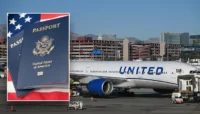Aviation is a highly regulated industry, and one of the key factors that keep the global air transportation system organized is airport slots. Slots determine when and where an airline can operate its flights, playing a critical role in managing air traffic at congested airports. But why does a flight get a slot in the first place? This article explores the reasons behind slot allocations and their impact on the aviation industry.
Why Do Flights Get a Slot?
A flight is assigned a slot for several key reasons:
- Airport Capacity Management – Major airports have a limited number of runways, gates, and airspace capacity. Slots are used to regulate takeoffs and landings to avoid congestion and delays.
- Efficient Air Traffic Control – To maintain a smooth flow of flights and avoid airspace congestion, air traffic control assigns slots based on available resources and schedules.
- Passenger Demand and Airline Operations – Airlines request slots at peak times to maximize efficiency and profitability. Slots ensure airlines can operate flights when demand is highest.
- Regulatory and Safety Requirements – Authorities ensure flights operate within safe limits by assigning slots that balance aircraft movements throughout the day.
- International Coordination – Many flights require slots at both departure and arrival airports, ensuring synchronized schedules and smooth global connectivity.
How Are Slots Allocated?
Slots are distributed through a process called slot coordination, managed by independent slot coordinators or aviation authorities. The allocation is based on international guidelines, mainly outlined in the IATA Worldwide Airport Slot Guidelines (WASG). Here’s how the process works:
- Historical Precedence (Grandfather Rights) – Airlines that previously held slots at an airport often have the first right to retain them, provided they meet the 80/20 rule (utilizing at least 80% of the allocated slots).
- New Entrants – A percentage of available slots is reserved for new airlines entering a market to promote competition.
- Secondary Market Trading – Some airlines buy, sell, or lease slots, particularly at highly congested airports like London Heathrow (LHR) or New York JFK.
- Government or Regulatory Intervention – Authorities may intervene to ensure fair competition and compliance with international regulations.
Why Are Slots Important?
Slots influence airline operations, business strategies, and the passenger experience in several ways:
1. Airport Efficiency and Congestion Management
Airports must manage thousands of takeoffs and landings daily. Slots ensure an orderly schedule, preventing overcrowding in the air and on the ground.
2. Airline Competition and Market Entry
Slots are valuable assets, and at some airports, they are limited. This can make it challenging for new airlines to enter the market, sometimes leading to high prices for prime-time slots.
3. Flight Scheduling and Passenger Experience
Passengers benefit from well-managed slot allocations as they lead to predictable and reliable flight schedules with fewer delays.
4. Economic and Financial Impact
Slots at major airports can be worth millions. Airlines often trade them for strategic growth, impacting ticket prices and overall profitability.
Challenges and Future of Slot Management
As air travel demand increases, managing slots becomes more complex. Some of the key challenges include:
- Limited Expansion Possibilities – Many major airports operate at full capacity, making it difficult to accommodate growth.
- Environmental Considerations – Authorities must balance slot allocations with sustainability goals and noise regulations.
- Technology and Automation – Advanced air traffic management systems are being explored to maximize efficiency without needing more physical runways.
Conclusion
Aviation slots are essential to keeping global air travel structured and efficient. They regulate access to high-demand airports, ensuring smooth operations while balancing competition and economic interests. Understanding why flights get slots helps airlines, passengers, and aviation professionals appreciate the complexities of air traffic management.
The next time you book a flight, remember—your airline’s access to that airport at that time was carefully planned and secured well in advance!








